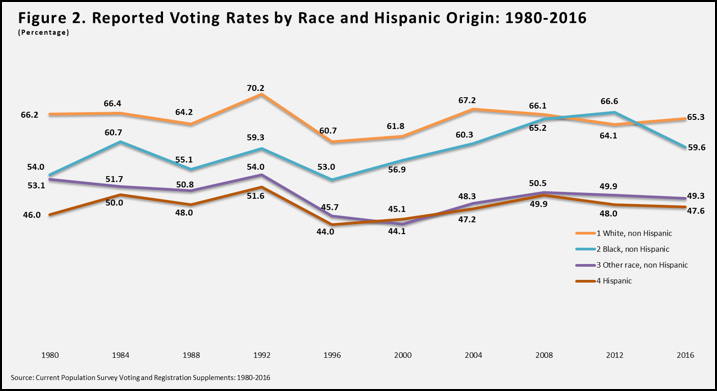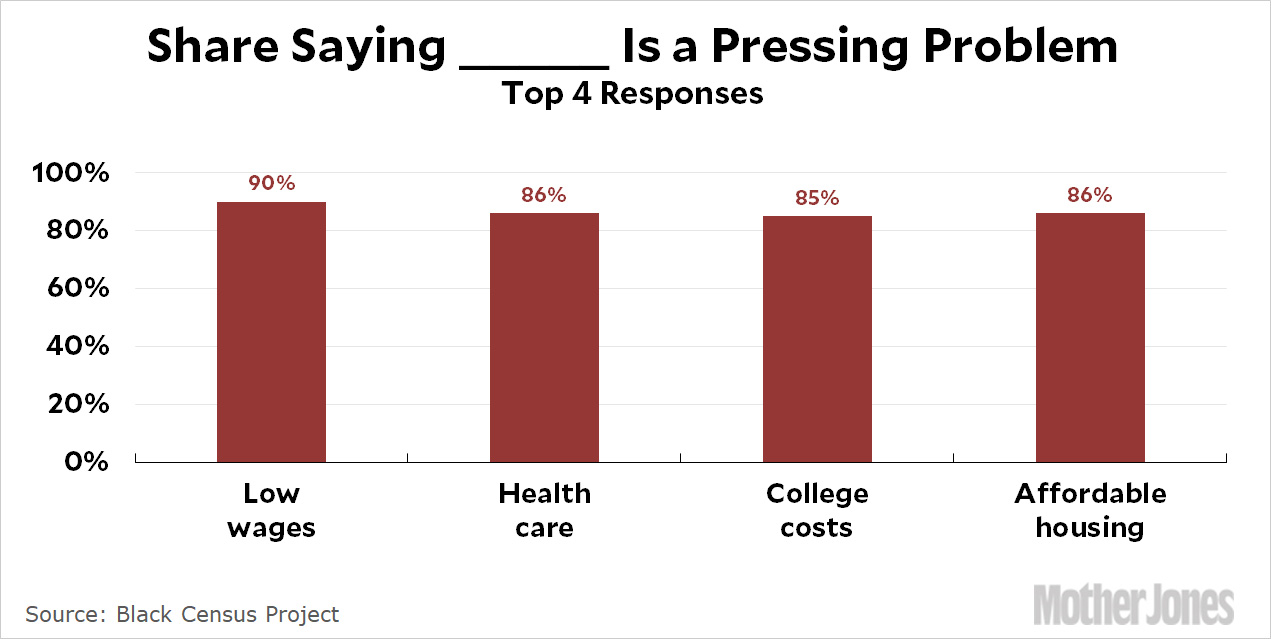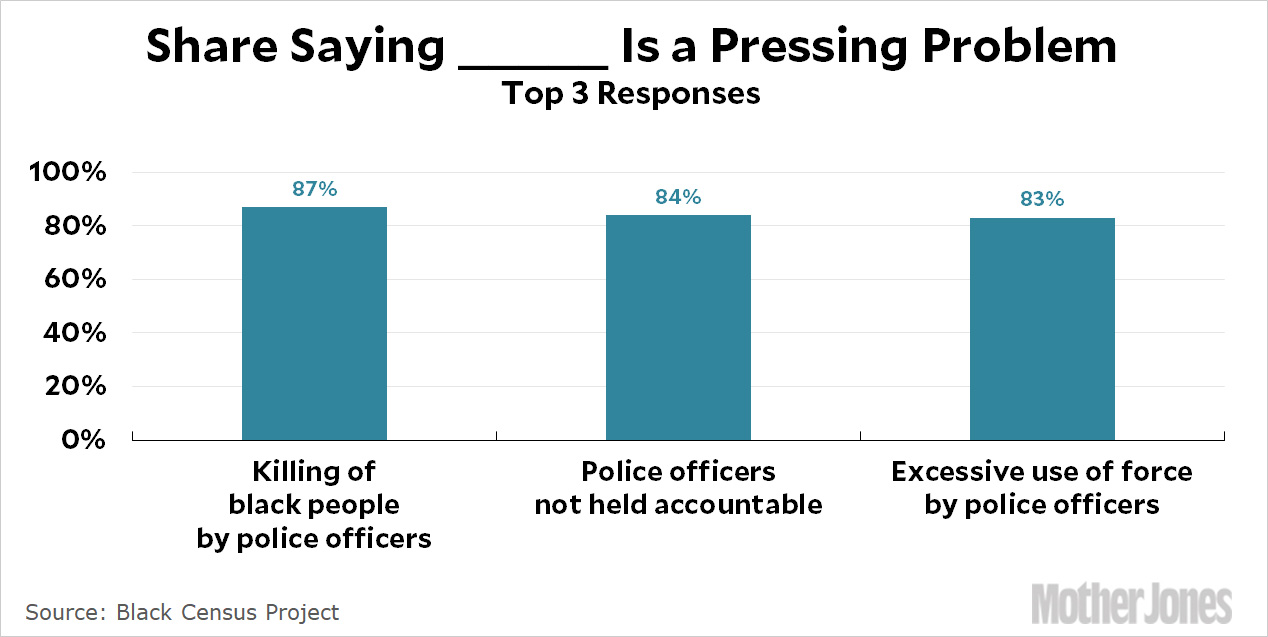Alicia Garza, head of the Black Futures Lab, reports on the results of the Black Census Project, which she presents as “the largest independent survey of black people ever conducted in the United States.” Here’s a snippet from her New York Times op-ed:
Nearly three in four respondents said they voted in the 2016 presidential election, and 40 percent reported helping to register voters….These responses debunk the myth that black communities don’t show up to vote — we do and we bring other people with us.
I’m not sure this really debunks anything since it’s not based on a random sample and doesn’t tell us anything about black turnout relative to other groups. However, the Census Bureau has debunked this:

During the 80s and 90s, African-American voter turnout was significantly less than white voter turnout. That was no myth, but it is outdated. Blacks started to close the gap during the Bush administration and closed it completely during the Obama presidency. In 2016 the gap opened up again at a low level, and only time will tell if it gets better or worse over the next few elections.¹
Anyway, this got me curious about the Black Census Project, so I headed over to look at it. The current report is limited to economic issues and criminal justice issues, which means there’s nothing about abortion or reparations or troops in the Middle East or gay marriage or climate change or anything else. Presumably those things will be reported later. Nor is it presented as a traditional random-sample survey:
Because traditional surveys too often erase the diverse experiences of Black people and particular segments of the Black community, the Black Census Project intentionally oversampled certain populations: Black Census respondents are younger, more likely to be female, and more likely to identify as LGBTQ+ than the Black population as a whole. The Black Census sample has a higher educational attainment than the adult Black population nationally (nearly a fifth has earned an advanced degree)….These divergences illuminate the differences within the Black community, enabling the Census to include communities that are often left out and to understand the diversity of the Black community in ways that traditional surveys often fail to capture.
A fifth have advanced degrees! This compares with 8 percent for the black population overall. This is definitely an elite sample that doesn’t represent the broad black population. In any case, here are the economic issues they say they care the most about:

These are roughly the same issues that would come out on top in any survey of progressives. And the most popular policy solutions are similar too: $15 minimum wage, making college affordable, providing adequate housing, providing affordable health care, taxing the wealthy, etc. This is one of the things that makes it difficult to define a “black” economic agenda: nearly all of the things that help blacks also help non-rich whites.
Here are the top criminal justice and policing issues:

The policy solutions that scored more than majority support were body cams, having police officers live in the community where they work, holding police officers accountable, and community boards to supervise the police force. Body cams and community boards were the only things with support above 60 percent. I’m not sure if you’d get different responses from white progressives, but I suspect they wouldn’t be much different.
I’ll confess that I don’t quite understand the overall tone of the report, which is based on the idea that traditional surveys ignore the diversity of black opinion and the BCP fills that gap. I don’t think that’s really true. What’s more, the BCP has diversity problems of its own, since it underrepresents the life experiences of the poorer and more traditionalist segments of the black community. However, if you want to get an idea about the priorities of the politically activist segment of the African American population, it’s probably a good place to start.
¹I’m not sure where you could get the raw data for this, but I’ll bet if you controlled for income the gap never really existed. That is, I’ll bet that blacks have always voted at about the same rate as whites of similar incomes.














